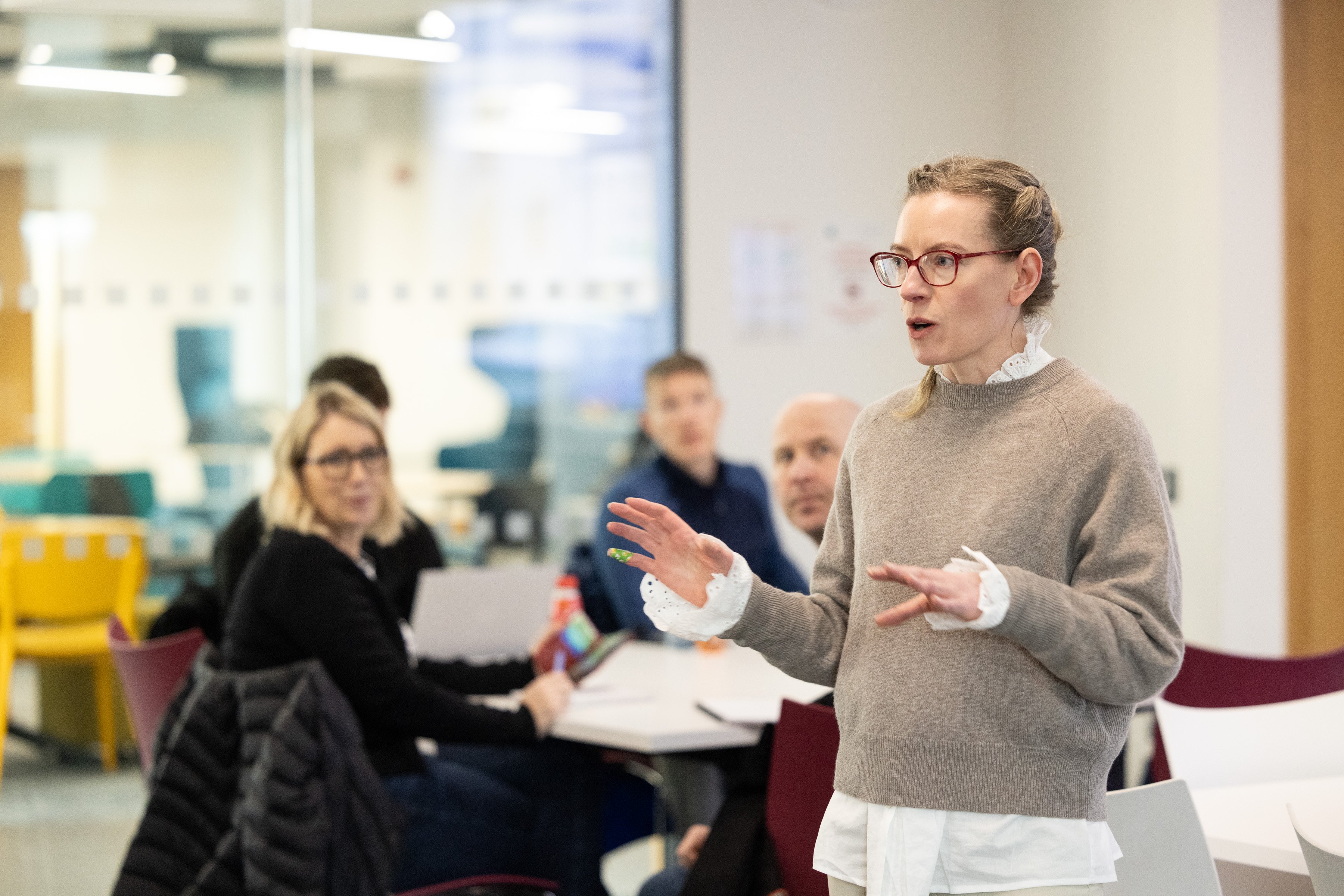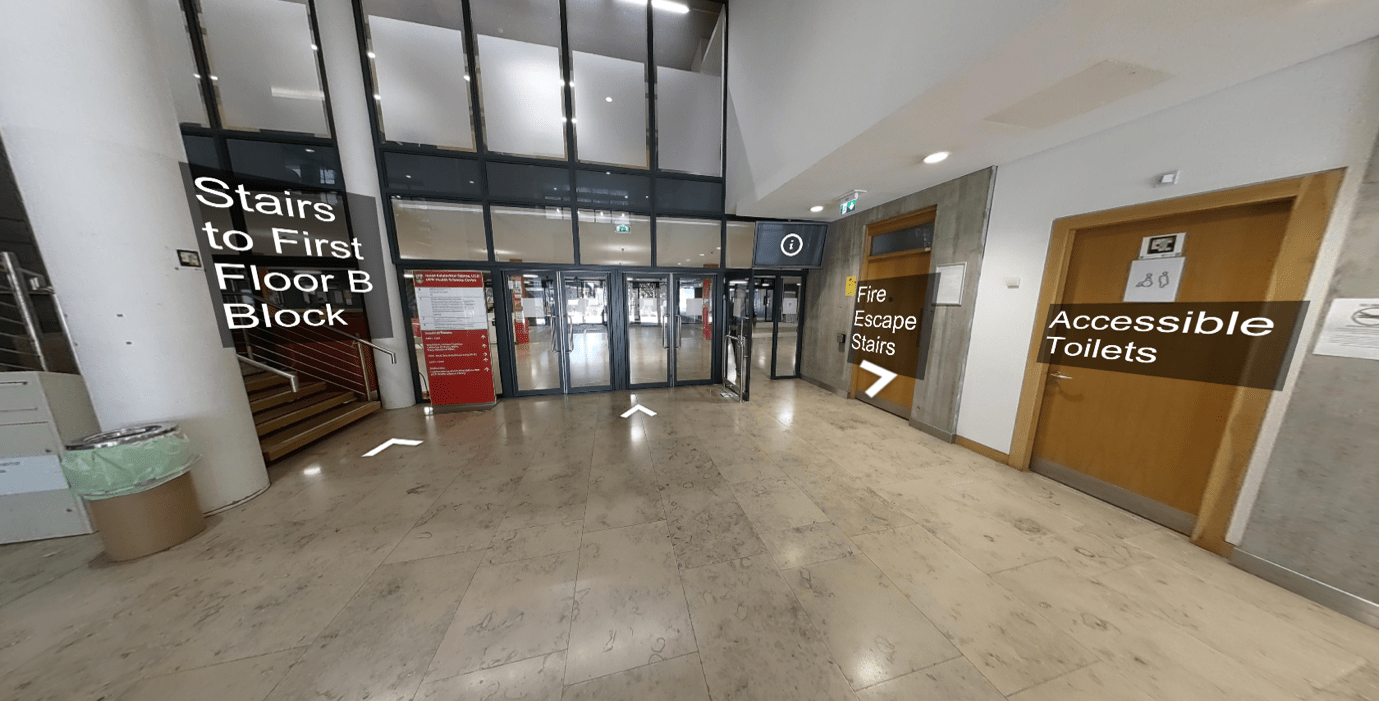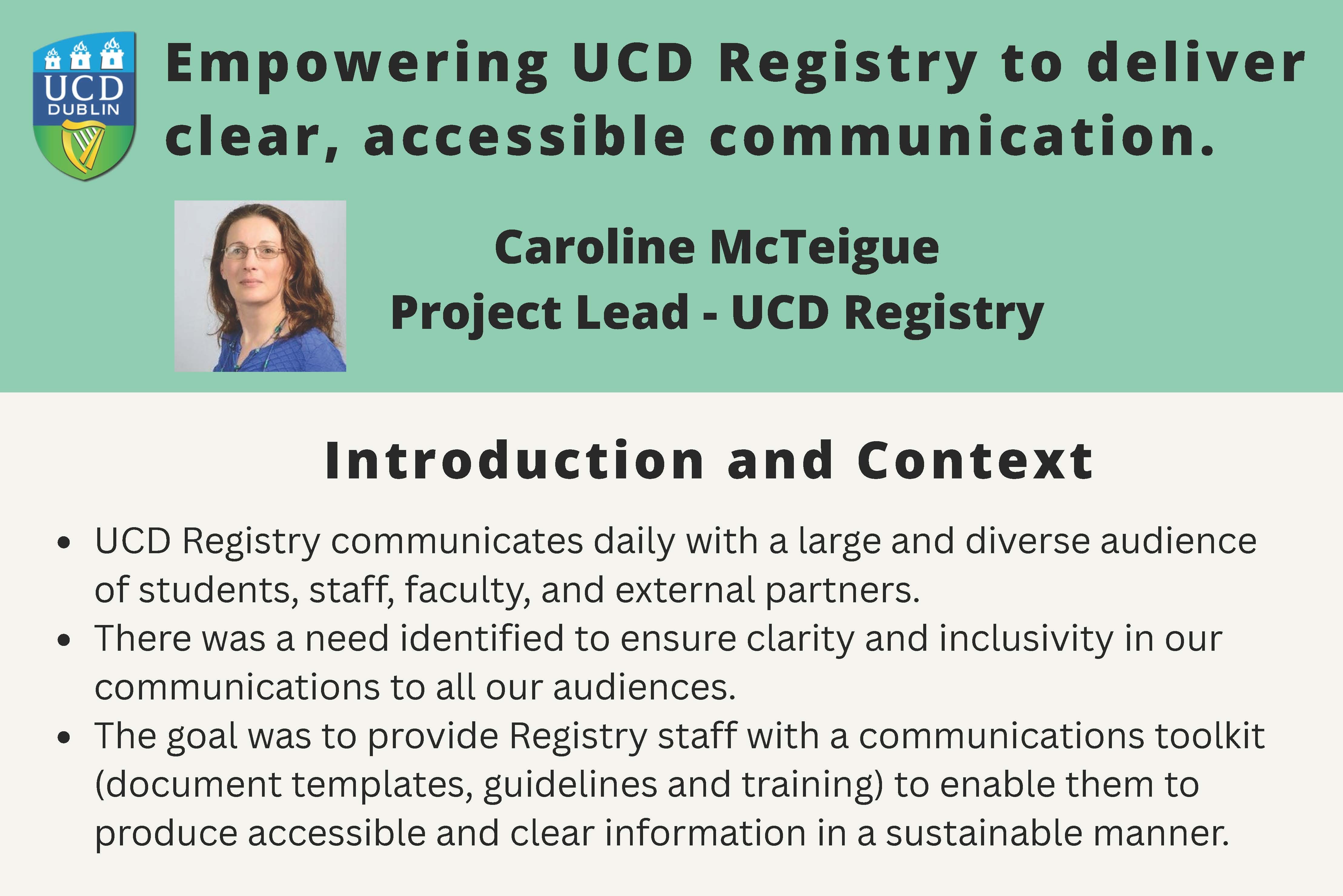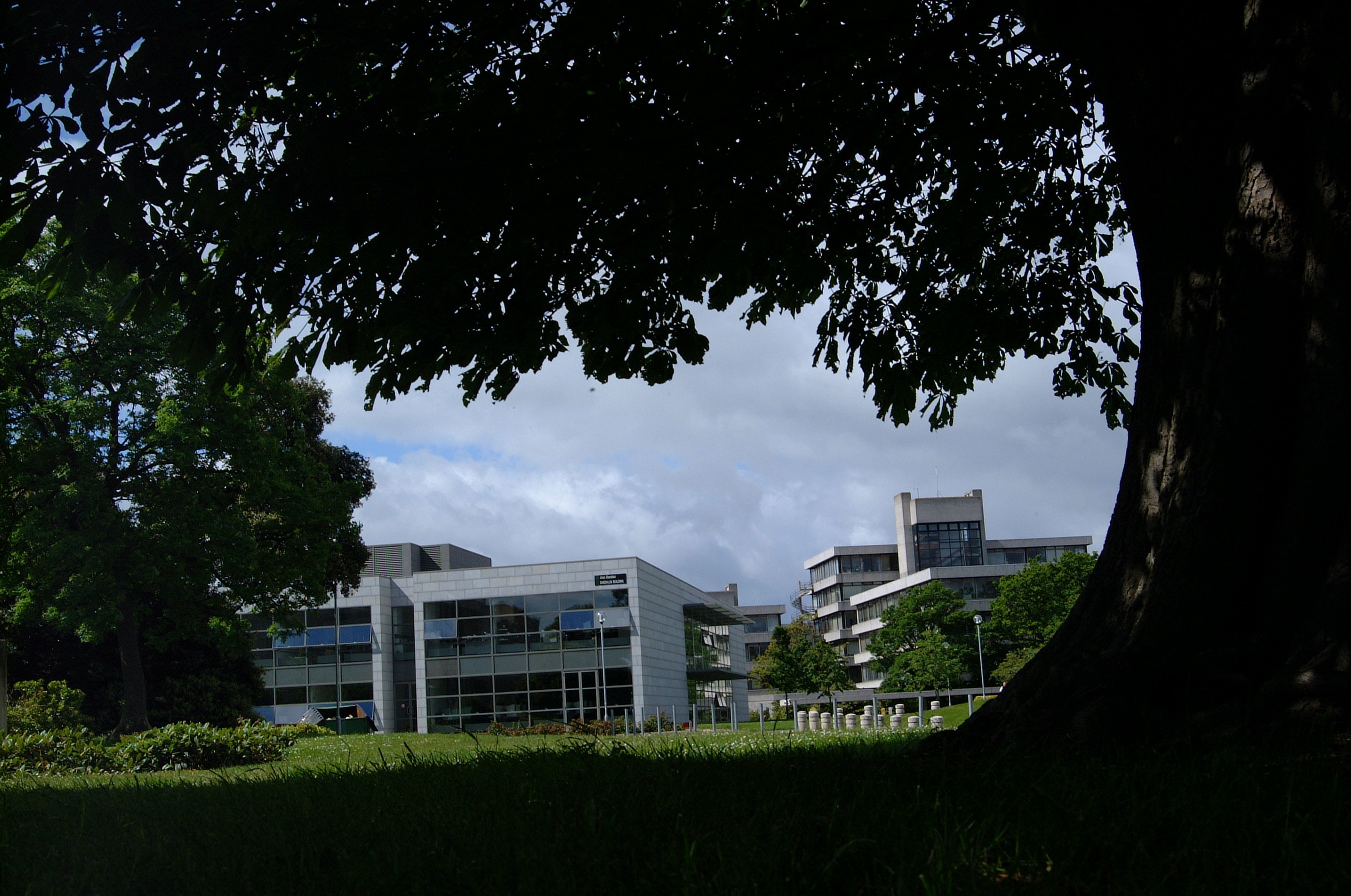Overview
Launched in Autumn 2023, the University for All Professional Staff Partnership Programme supports and accelerates the implementation of Universal Design throughout UCD Student Supports and Services. Building on the work of the Faculty Partnership Programme which has seen the widespread adoption of UDL training and practices by UCD faculty and teaching staff, this Programme has built the Universal Design capacity of the University’s professional staff colleagues to ensure that student supports and services are accessible for all students. This pilot focuses on colleagues who are in roles that attract, retain, develop and support the diverse student population in UCD. This pilot focuses on colleagues who are in roles that attract, retain, develop and support the diverse student population in UCD.
We are delighted to announce the appointment of nine UCD colleagues as Professional Staff Partners:
- Dr Kate Collins - Programme Manager Global Campus, School of Business
- Dr Colleen Doyle - Global Alliance & Networks Officer, UCD Global
- Karen Maye - School Placement Lead and Head of PME Outreach Initiatives, School of Education
- Caroline McTeigue - Project Lead Customer & Curriculum Operations, UCD Registry
- Dr Niamh Nestor - Head of Service, Student Advisers
- Adam Tattersall - Technology Enhanced Learning Manager, School of Medicine
- Ryan Teevan - Head of Educational Technology Services, IT Services
- Emma Somers - Mature Student Adviser
- Jiaqi Zhang - Technology Integration Manager, Innovation Academy
The cornerstone of this Programme is the Digital Badge for Universal Design Beyond the Classroom. This Badge inspires staff to universally design their practices, regardless of their roles, so that all students and staff can engage with their work. Professional Staff Partners have completed this course, and now facilitate rollouts of it for their colleagues and have become role models for inclusion. Professional staff have become recognised leaders in the field of access and inclusion and the implementation of Universal Design. The Programme is funded by the HEA’s PATH 4 Universal Design Fund.
Below you will find case studies from each of the Staff Partners.

Kate Collins - UCD College of Business
This case study sought student feedback to determine how to use UDL as a means to improve orientation for new students and increase flexibility and accessibility for the student cohort as a whole. The Diploma/Bachelor of Business Studies Part-Time is aimed at students who wish to continue working while studying and had been delivered over 6 weekends each academic year. The programme changed its delivery format to include less face-to-face delivery and more online content as well as a phased orientation process to give students increased opportunities to engage with us and with the programme before the academic term commenced. Initial findings suggest that the latest cohort of students finds the changes have increased accessibility of the programme.
Karen Maye - UCD School of Education
This case study explores a professional learning intervention, Teachers Leading Mentoring, developed to enhance the mentoring capacity of Cooperating Teachers (CTs) in Irish schools. Grounded in Universal Design for Learning (UDL) principles, the initiative fosters democratic pedagogical partnerships between schools and the University College Dublin (UCD) School of Education. Drawing on survey data, interviews, and post-intervention reflections, the study highlights CTs' need for recognition, guidance, and peer collaboration. Findings reveal increased CT confidence, engagement, and willingness to act as co-educators. The programme demonstrates the potential to bridge theory and practice in teacher education through inclusive, teacher-informed mentorship structures.

Adam Tattersall - UCD School of Medicine
As educational technologists directly affiliated with the School of Medicine, we are committed to continually updating and modernising practices within the Medicine curriculum to enhance the learning experience for our students. Universal Design for Learning (UDL) is an integral component of this process, serving as a cornerstone for informing pedagogical decisions. In this spirit, we have embarked on three learning projects. Each project was selected not only to provide support to learners but also to inform educators about the technological possibilities that are available:
- A 360-degree self-directed walkthrough of the Health Sciences Building on the UCD Belfield Campus.
- The development of an Electronic Publication (EPUB).
- The development of a Chest Sounds Library for Paediatrics.

Caroline McTeigue - UCD Registry
This project aimed to enhance the clarity and inclusivity of UCD Registry communications by equipping staff with accessible document templates, guidelines, and training. A communications audit identified areas for improvement, leading to the creation of new templates aligned with Universal Design for Learning and accessibility standards (WCAG 2.1). Registry Staff received training in Plain English
and Universal Design, and a student video library was expanded with accessible features. These efforts significantly improved digital accessibility scores and staff engagement. The project showcases a sustainable, peer-led approach to embedding inclusive communication practices within higher education administration.

Ryan Teevan - UCD IT Services
This project looked at the development of accessibility statement templates that could be adapted to all digital solutions deployed across the University. The project involved working with an accessibility consultant in the development of the statement and provides a solid base for the review and publishing of digital solution accessibility statements within the University.
Jiaqi Zhang - UCD Innovation Academy
This case study describes how Universal Design was applied at the UCD Innovation Academy MakerSpace, starting with a “Plus One Action” to redesign its website. The new site directly tackled problems of limited visibility and access by introducing a clear, accessible wiki page that includes tutorials, project showcases, and event details. Students can now easily explore available resources, book equipment, and plan visits at times that suit them. Building on this progress, the Maker Residency Programme was launched, giving diverse students the opportunity to collaborate on projects, share open-source outputs, and put UD principles into community practice.